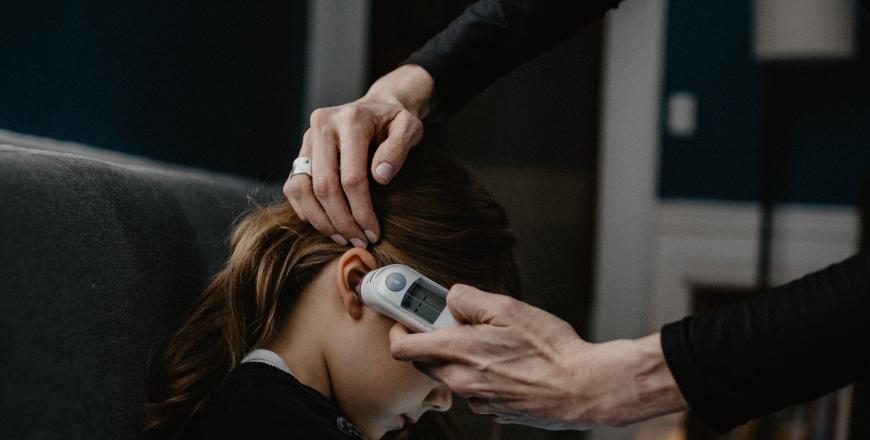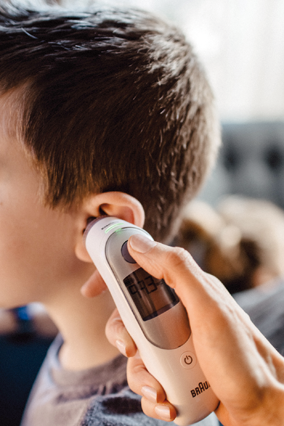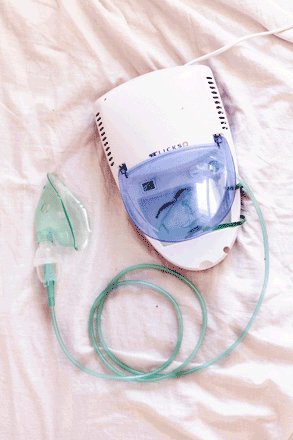You are here
Parents concerns grow amid RSV surge among children
By Rayya Al Muheisen - Dec 06,2022 - Last updated at Dec 06,2022

Representative image (Photo courtesy of unsplash/ HYPERLINK "https://unsplash.com/@kellysikkema" Kelly Sikkema)
AMMAN — Parents are expressing concern amid a nationwide Respiratory Syncytial Virus (RSV) surge among school-aged children.
RSV is a common respiratory virus that usually causes mild, cold-like symptoms. Most people recover in a week or two, according to doctors.
Director of Hospitals and Technical Affairs Department at the Ministry of Health Imad Abu Yaqeen told local media outlets that the ministry took all necessary measures to reduce the surge of all seasonal viruses, including RSV.
“RSV is a contagious respiratory virus that causes flu-like symptoms,” Abu Yakeen added.
Symptoms of the virus can vary from difficulty breathing, to a swollen throat, a dry cough, and in some cases, an airway infection in the lungs, he said.
However, RSV is not considered a dangerous virus Abu Yakeen said. “It's not a new virus either; it a seasonal one that occurs during the fall and spring,” he said.
The ministry has taken precautionary measures as the result of the surge in cases. The ministry's efforts include urging hospitals to increase the number of medical staff and medication stocks, Abu Yakeen said.
“There’s no need to panic. RSV is seasonal, and very few cases need hospitalisation,” Abu Yakeen added.
Abdel Rahman Shaher, former health director at the Ministry of Health, told The Jordan Times that RSV can be dangerous and, in some cases, requires hospitalisation for children under five years old.
“RSV may not be severe when it first starts. However, it can become more severe a few days into the illness,” Shaher added.
Early symptoms of the virus may include runny nose, fever and cough, which may progress to wheezing or difficulty breathing, Shaher said.
“Fever may not always occur with RSV infections,” he noted.
If caregivers suspect a case of RSV, they should consult a specialised doctor, he advised. “Don’t give kids antibiotics without a paediatrician's checkup and consent,” Shaher said.
“Most RSV infections go away on their own; patients can be given medications to manage pain and fever,” Shaher added.
Children exhibiting low to mild symptoms can be given over-the-counter medications. Additionally, patients should drink fluids frequently to stay hydrated, Shaher said.
“Cleaning surfaces and hands, and avoiding close contact with sick people reduces the chances of catching RSV,” Mohammad Tarawneh, a general practitioner, told The Jordan Times.
When people infected with RSV touch surfaces and objects, they can leave behind germs, Tarawneh added. If an infected person coughs or sneezes, germ-carrying droplets can land on surfaces and objects. “Sanitize surfaces and try to avoid touching public doorknobs and elevators,” Tarawneh recommended.
Rasha Nemeh spent the last week with her son at the hospital due to RSV symptoms. She told The Jordan Times that her son had difficulty breathing and the doctors had to administer supplementary oxygen.
“At least 10 of his classmates caught the virus,” Nemeh added.
Haneen Jarafy, a mother of two, said that her child caught the virus from his classmates and didn’t require hospitalisation.
Despite several attempts by The Jordan Times to contact the Health Ministry, they were unavailable to comment.
Related Articles
AMMAN — Parents are calling on the authorities to introduce and implement parental leave provisions in light of the surge in Respirato
AMMAN — Doctors are calling for the creation of “clear and specific” protocols for asthma patients in emergency rooms and medical care centr
AMMAN — Doctors and parents in Jordan are urging the government to issue approval for the Respiratory Syncytial Virus (RSV) medication
















